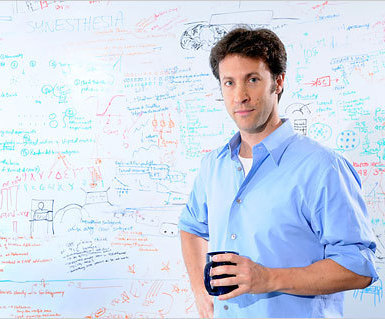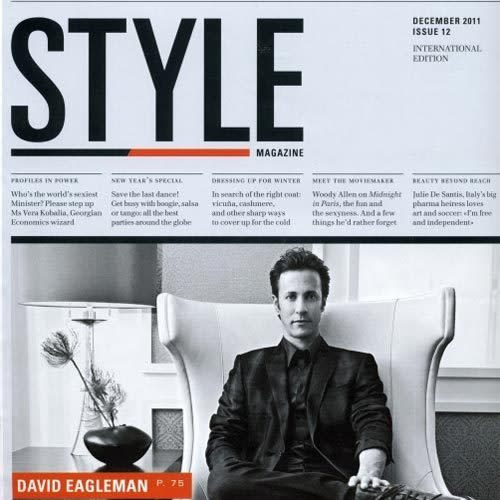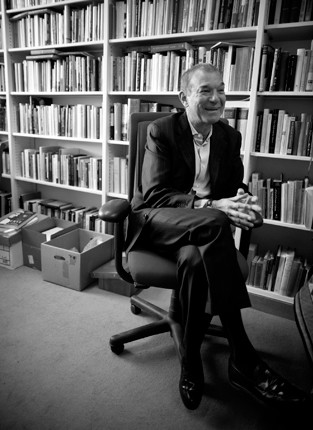Dueling Eggheads: Stephen Greenblatt vs. David Eagleman
While the ivory tower is full of scholars with big ideas, a regrettable few can communicate them in ways we mere mortal minds understand, let alone find engaging. That’s why we exalt in thinkers like Stephen Greenblatt and David Eagleman, who have the smarts but also a knack for translating and storytelling. And the two will be filling the Schnitz with their big ideas next Monday and Tuesday. If you can only see one, here's how they measure up:

David Eagleman
March 4
Arlene Schnitzer Concert Hall
Eagleman is a neuroscientist wizard who pulls the curtain of our conscious brain back to access what’s beneath, answering questions along the way of why do we start to brake before we’re aware something’s in the road, or why do we tip strippers better when, unknown to us, they’re more fertile. His work has taken him from TED Talks to South by Southwest to working as the scientific adviser for the TNT show Perception, not to mention to the cover of an Italian fashion mag.

Professor at: Baylor College of Medicine
Best-Known Books and Weeks on the New York Times Best-Sellers list:
Sum: Forty Tales from the Afterlives: Like the afterlife, it's a mystery to us.
Incognito: The Secret Lives of the Brain: 16 weeks
Awards: 1 Guggenheim, 1 New Yorker profile, one of Houston’s Most Stylish Men according to Houston Magazine
NPR Love:
Eagleman led Radiolab cohosts Krulwich and Jad Abumrad through why time seems to slow when we’re falling and the stories in Sum were read throughout the Afterlife episode; Talk of the Nation's Science Friday interviewed him about Incognito; so did Fresh Air.
For show and ticket info, visit our events calendar.

Stephen Greenblatt
March 5
Arlene Schnitzer Concert Hall
A preeminent expert on Shakespeare, Greenblatt’s classic biography speculates on all manner of Bard mysteries, such as why he was so taken with unforeseen catastrophes (his father had a fall from grace) and why he never depicted happy marriages (his own marriage was unpleasant; he willed his wife only his second-most-comfortable bed). He is also an authority on the Renaissance and a founder of a controversial school of literary criticism called “new historicism.”
Professor at: Harvard University
Best-Known Books and Weeks on the New York Times Best-Seller list:
Will in the World: 9 weeks
The Swerve: How the World Became Modern: 19
Awards: 2 Guggenheims, 1 Pulitzer, 1 National Book Award
NPR Love:
Greenblatt led NPR science correspondent/Radiolab co-host Robert Krulwich through the story of coming across a surprisingly modern Roman poem that eventually became the basis of Greenblatt’s historical detective history, Swerve; Fresh Air reviewed Swerve; and Steve Inskeep interviewed Greenblatt on Morning Edition about Will in the World.
For show and ticket info, visit our events calendar.




